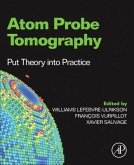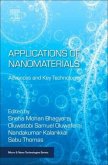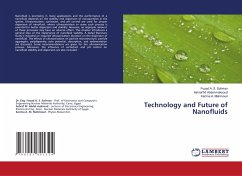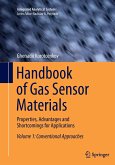Introduction to Machine Olfaction Devices discusses the various aspects of a MOD device, from historical approaches to state-of-the-art technologies. This book also covers the mechanism in dealing and detecting gases, odor, and aroma. Problems and solutions relevant to present day design have been outlined as well as a step-by-step guide to Machine Olfaction Device (MOD) design. Sensors and gas systems, along with polymers and certain manufacturing processes, have been discussed, together with other relevant materials for the MOD process and functions including comparison and validations, data processing, data analysis, MOD new design, micro systems, and monitoring systems.
Aimed at developing a novel and improved MOD with more efficient on-board data processing capability for monitoring applications, this book will help you to design an MOD with
a faster stabilizing base line;
a quicker sample result display;
an ability to use ambient air;
a low power consumption; and
the ability to deal with different varieties of organic/inorganic samples.
With a focus on the most important and relevant aspects of designing MODs which currently require a solution, topics covered include MOD and market issues, cost, technical issues, and MOD applications.
With a huge range of potential applications, this book will be of special interest to those working (or studying) in this field at every level, from Biomedical, Energy, or Electrical Engineers, to Computer or Food Scientists.
Introduction to Machine Olfaction Devices discusses the various aspects of a MOD device, from historical approaches to state-of-the-art technologies. This book also covers the mechanism in dealing and detecting gases, odor, and aroma. Problems and solutions relevant to present day design have been outlined as well as a step-by-step guide to Machine Olfaction Device (MOD) design. Sensors and gas systems, along with polymers and certain manufacturing processes, have been discussed, together with other relevant materials for the MOD process and functions including comparison and validations, data processing, data analysis, MOD new design, micro systems, and monitoring systems.
Aimed at developing a novel and improved MOD with more efficient on-board data processing capability for monitoring applications, this book will help you to design an MOD with
a faster stabilizing base line; a quicker sample result display; an ability to use ambient air; a low power consumption; and the ability to deal with different varieties of organic/inorganic samples.
With a focus on the most important and relevant aspects of designing MODs which currently require a solution, topics covered include MOD and market issues, cost, technical issues, and MOD applications.
With a huge range of potential applications, this book will be of special interest to those working (or studying) in this field at every level, from Biomedical, Energy, or Electrical Engineers, to Computer or Food Scientists.
Aimed at developing a novel and improved MOD with more efficient on-board data processing capability for monitoring applications, this book will help you to design an MOD with
a faster stabilizing base line;
a quicker sample result display;
an ability to use ambient air;
a low power consumption; and
the ability to deal with different varieties of organic/inorganic samples.
With a focus on the most important and relevant aspects of designing MODs which currently require a solution, topics covered include MOD and market issues, cost, technical issues, and MOD applications.
With a huge range of potential applications, this book will be of special interest to those working (or studying) in this field at every level, from Biomedical, Energy, or Electrical Engineers, to Computer or Food Scientists.
Introduction to Machine Olfaction Devices discusses the various aspects of a MOD device, from historical approaches to state-of-the-art technologies. This book also covers the mechanism in dealing and detecting gases, odor, and aroma. Problems and solutions relevant to present day design have been outlined as well as a step-by-step guide to Machine Olfaction Device (MOD) design. Sensors and gas systems, along with polymers and certain manufacturing processes, have been discussed, together with other relevant materials for the MOD process and functions including comparison and validations, data processing, data analysis, MOD new design, micro systems, and monitoring systems.
Aimed at developing a novel and improved MOD with more efficient on-board data processing capability for monitoring applications, this book will help you to design an MOD with
a faster stabilizing base line; a quicker sample result display; an ability to use ambient air; a low power consumption; and the ability to deal with different varieties of organic/inorganic samples.
With a focus on the most important and relevant aspects of designing MODs which currently require a solution, topics covered include MOD and market issues, cost, technical issues, and MOD applications.
With a huge range of potential applications, this book will be of special interest to those working (or studying) in this field at every level, from Biomedical, Energy, or Electrical Engineers, to Computer or Food Scientists.








